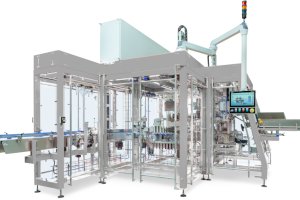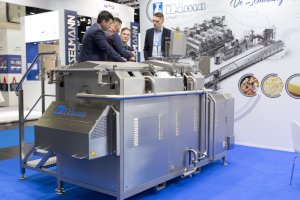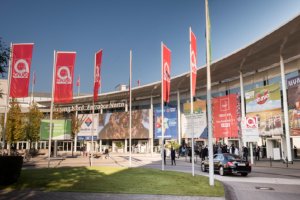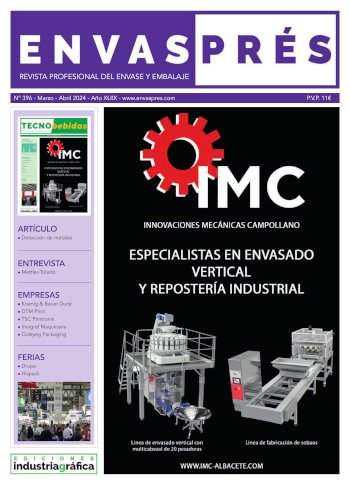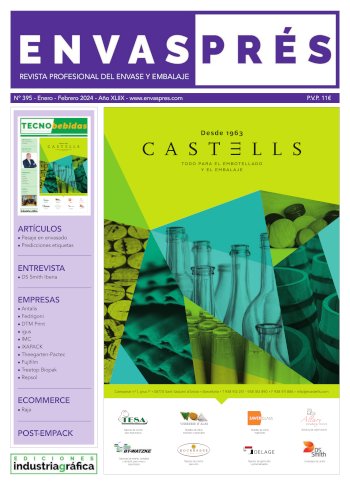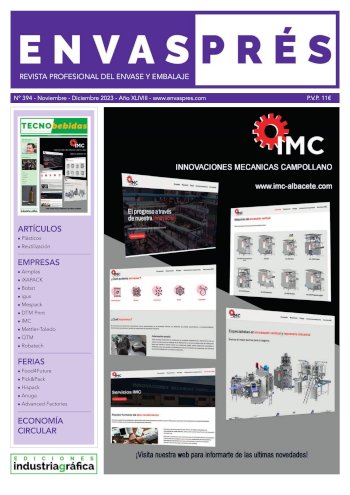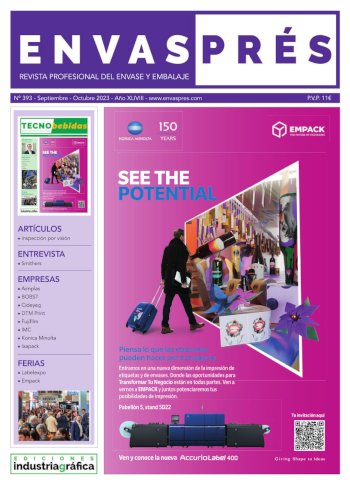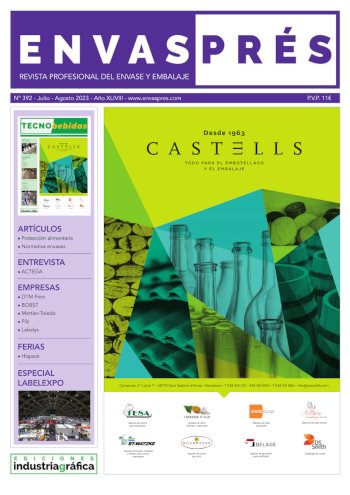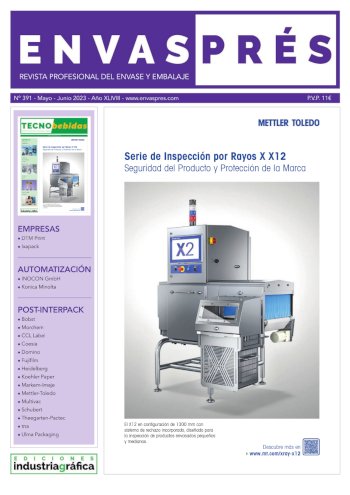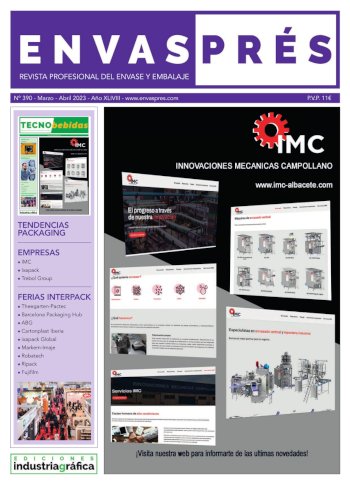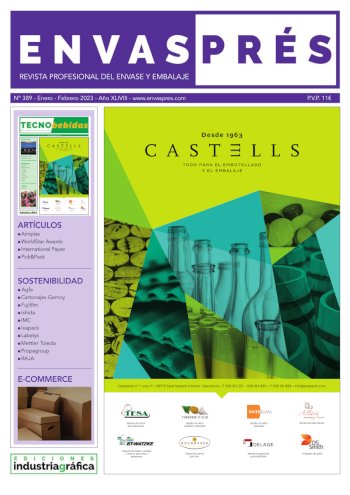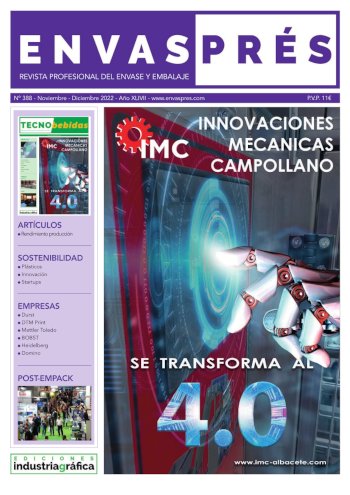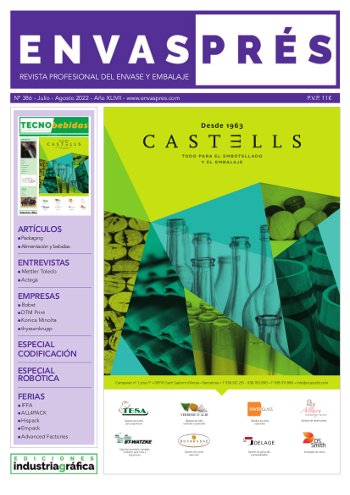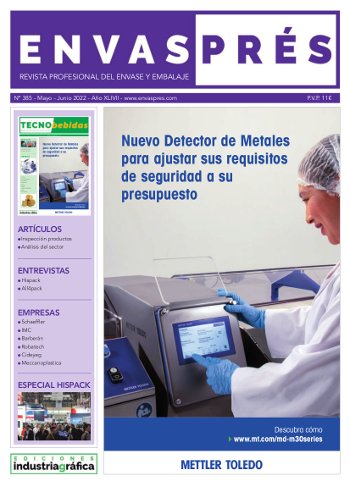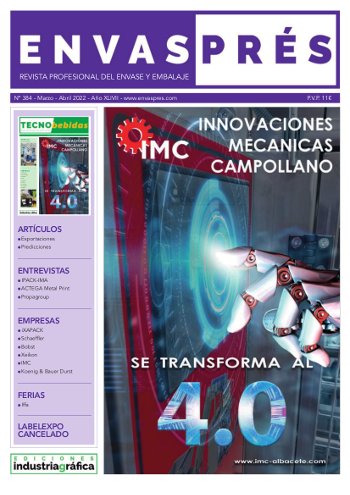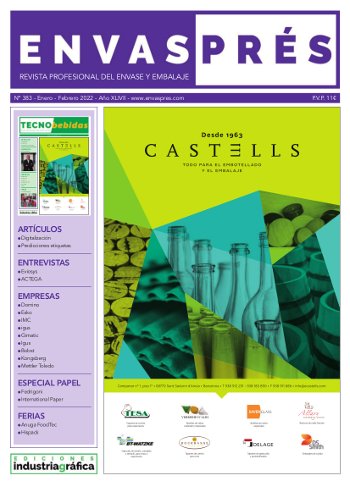Increased energy efficiency demanded: Efficient solutions for the food industry at Anuga FoodTec 2022
- Publicado el 03 de Febrero de 2022
Faster, more flexible, more sustainable - the food industry is faced with numerous challenges and is setting about shaping its production in a more resource-saving manner. Renewable energy and its decentralised generation is providing additional momentum. Modern photovoltaic systems and cogeneration units for the combined production of electricity, heat and cooling are helping save the companies operating costs and CO2 emissions. However, the energy turnaround is presenting great challenges for the industry. Whilst the climate policy goals are becoming increasingly demanding, the efficiency regulation at EU level is also continually developing.
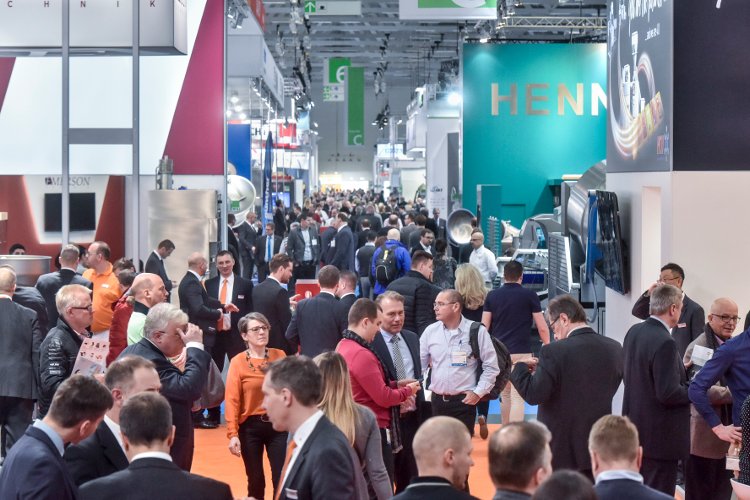
Food producers, who are striving to guarantee their security of supply under compliance of the legal provisions, will find innovations at Anuga FoodTec from 26 to 29 April 2022, which will help them realign their energy efficiency. The following applies here: Already in the design phase of machines and systems, energy considerations are being taken more and more into account - and all of the innovations are also always combined with the digitalisation aspects.
Compact electrical and pneumatic components, which are targetedly optimised to provide higher productivity with a lower power consumption, are an important factor. In March 2021, the new Ecodesign Directive came into force European-wide. This led to standard asynchronous motors designed for continuous operation also having to be further developed. Frequency converters fall under the scope of the new directive for the first time. Drive specialists already offer an extensive range of electric motors that correspond with the more challenging demands of the efficiency class IE4. So that the switch-over to the new motors works, they place web-based tools at the disposal of their OEM partners and end customers.
As an electromechanical overall package, the powertrain is the conceptual prerequisite for an energy efficient integration of the individual components - depending on the machine type and the concrete demands an energy saving of between 20 and 50 percent can be achieved. Decentralised synchronous servo drives have an advantage over asynchronous motors here. Whereby the weight also plays a role, because the lighter a servo motor is, the less drive power it needs. A savings effect that adds up in high-performance packaging machines with 50+ servo axes. Parallel to this more and more components like compressed-air valves are being directly built into the machines instead of into the control cabinet. Less wiring, shorter tubes and a lower risk of leakage are the result of this decentralisation strategy of the plant builders.
In addition to efficient electric motors and pumps as well as energy recovery methods, the food production industry is focusing more and more on the demand-controlled use of energy. The digitalisation enables the identification of additional saving potential. In future, Big Data and self-learning algorithms are to provide a comprehensive depiction of all energy flows in the company through to the heating, climate and ventilation systems. Under consideration of predicted data for the production, building usage and weather, the overall energy consumption is simulated, whereby the pre-set goals are cost reduction and CO2 savings. Such a system doesn't react to the actual state, but instead controls the energy processes proactively according to the calculated predictions of the electricity, heat and cooling requirements.
Intelligent and robust sensors that collect data, generate information and communicate this in real-time are the basis for such a networked energy management 4.0. They record the energy consumption and the basic electrical values. Mobile apps make it possible to evaluate the energy data in a location-independent manner. They record the heat, electricity or compressed air consumption through to the level of the individual machines and evaluate these in clearly-arranged management surfaces.
This structured collection of data from different sources allows the direct calculation and comparison of key performance indicators, for both overall systems and for individual consumers. The depiction of the data can be adapted to the user's needs. In this way, the machine operator can keep an eye on the current system status, whilst the interest of the plant manager lies more on the energy consumption and production statistics.
Big Data technologies also play a key role in the success of the energy turnaround beyond corporate level. At the Institute for New Energy Systems of the Ingolstadt Technical University, in the scope of the project entitled "BlueMilk", Prof. Dr. Ing. Uwe Holzhammer is thus concentrating on identifying ways for companies to actively shape the energy turnaround. "The aim must be to cover the residual electricity demand with renewable energy using wind power and photovoltaic systems," he confirmed. Together with partners from the dairy industry, Holzhammer and his team are investigating where fossil-fuelled heat in dairies can be replaced through sector coupling and the implementation of renewable energy and where there is potential for increasing the energy efficiency within the production.
At the same time, the scientists are striving to find ways that enable the flexible sourcing and/or provision of energy. A sector coupling approach that "BlueMilk" is looking into is the intelligent cogeneration of power and heat using cogeneration units. "Organising the supply into the general supply system depending on the price of electricity, opens up new possibilities to dairies, not only for generating revenue, but also to sink the CO2 emissions," explained Volker Selleneit, a research assistant of the team.
Whilst the solutions of the exhibitors presented at Anuga FoodTec can answer the questions of the visitors in all exhibition segments, in the course of the trade fair's event and congress programme experts will show which measures and ideas the food industry can implement to address the challenges of the energy turnaround and achieve the desired resource savings.
Tuesday, 26.04.2022, 11:50 a.m. – 13:20 p.m., Main Stage – Topics, Trends, Technologies, Hall 6, Stand A 100/C 129.
In the scope of the event "Approaches for climate neutrality in the food industry", the BVE - the Federation of German Food and Drink Industries - will bring experts from various sections together, who will demonstrate strategies and ways for the agriculture and food industry. Tuesday, 26.04.2022, 13:40 – 15:10 p.m., Main Stage – Topics, Trends, Technologies, Hall 6, Stand A 100/C 129. "Food production in the intelligent factory". Organiser: IVLV - the Industry Association for Food Technology and Packaging e.V., Freising, Germany. Friday, 29.04.2022, 11:50 a.m. – 13:20 p.m., Main Stage - Topics, Trends, Technologies, Hall 6, Stand A 100/C 129. "The sustainable production of dairy products". Organiser: DLG, the German Agricultural Society.


